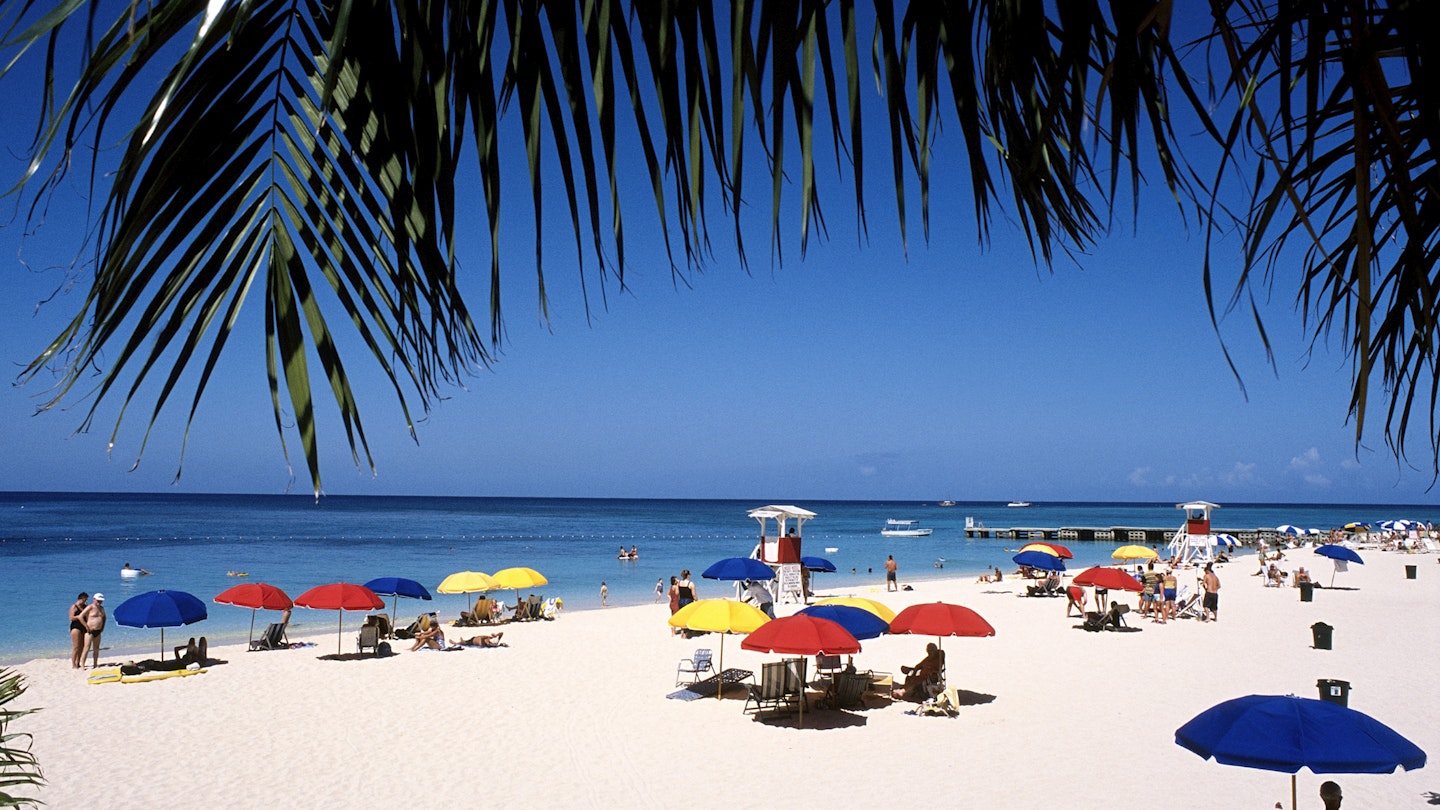Pulsating reggae and dancehall beats aside, Jamaica’s natural beauty — gorgeous beaches, jungle-covered mountains, and tropical waterfalls — along with its world-renowned culinary scene, sets it apart from other islands in the Caribbean.
Understanding the nation’s unspoken rules and etiquette is crucial for a smooth visit. Here’s everything you should know before you go.
1. Choose Where to Stay Wisely
Jamaica is one of the largest islands in the Caribbean, so choosing your accommodation depends on your interests. For beaches and water sports, Negril and the north coast are excellent choices.
Montego Bay and Ocho Rios combine great dining options with proximity to natural attractions and vibrant nightlife. Kingston, the capital, is renowned for its legendary music scene.
For a more relaxed experience, consider Treasure Beach on the south coast or Port Antonio on the north coast. If you’re interested in traditional Maroon culture, visit Charles Town on the northeastern coast.
Hiking up Blue Mountain Peak and trekking in the remote Cockpit Country can be organized from Kingston or Falmouth, respectively.
2. Bring a Mosquito Net (Just in Case)
Although Jamaican mosquitoes do not carry malaria, there are occasional outbreaks of dengue fever. Some guesthouses and hotels do not provide mosquito nets, so bringing your own is advisable.
For irritating bites from tiny midges, Avon Skin So Soft is a highly effective repellent.
3. Carry Some Cash
Credit cards are widely accepted in upmarket hotels, shops, and restaurants. However, cash (Jamaican dollars) remains essential in many other areas, especially outside tourist hotspots.
ATMs and currency exchanges are abundant in Montego Bay, Kingston, and Ocho Rios, but currency exchanges often provide the best rates. Small change is handy for buying from vendors and using public transport.
4. You Can Travel During Hurricane Season
Jamaica experiences hurricanes between early June and late November, most commonly from August to October. If visiting during hurricane season, consider the following:
- Purchase travel insurance that covers hurricanes.
- Download a hurricane tracker app.
- Determine your evacuation plan early.
- Check if your accommodation has hurricane shelter provisions.
- Ensure your electronics are charged, and have a flashlight, first aid kit, and food and water supply ready.
5. You Don’t Need to Hire a Car
The main towns in Jamaica are served by comfortable and air-conditioned buses, crowded minibuses, and route taxis. Public transportation is sufficient for most travelers, though those looking to explore remote locations might find hiring a car necessary.
6. Feel Free to Let Loose on a Night Out
Causal summer wear is generally acceptable, though upscale venues may require smart-casual attire. In nightclubs, women often wear fitted clothing while men opt for jeans and shirts. The atmosphere is laid-back, so judgment is minimized. Engaging with the local dance scene can be an entertaining experience.
7. Stay Up for the Nightlife
Jamaica’s nightlife is vibrant, especially in Kingston, Negril, Montego Bay, and Ocho Rios. Most festivities kick off after midnight, with parties often lasting until dawn.
8. Do Talk to Strangers
In Jamaica, conversing with locals is encouraged, and you may find many eager to learn about you. Engaging with vendors and greeting elders warmly is respectful, enhancing your overall experience.
9. Respect Rastafarianism
Approximately 1% of Jamaicans practice Rastafarianism, a movement combining Biblical teachings with a natural lifestyle. While some communities are secluded, the Rastafari Indigenous Village near Montego Bay offers a more accessible insight into this culture.
10. Gentle Bartering Over Prices is Common in Markets
Bartering is expected at local markets while set prices apply elsewhere. Always maintain a respectful approach when negotiating prices.
11. Jamaica is Not an LGBTIQ+ Friendly Country
Jamaican society is predominantly homophobic, with public displays of affection between same-sex couples being ill-advised. Nonetheless, some hotels in tourist areas welcome LGBTIQ+ travelers.
12. Clean Public Bathrooms Are Not Easily Found
Most public bathrooms in shopping malls, cafes, and restaurants charge a fee, and hygiene standards may vary significantly.
13. Jamaican Tap Water is Generally Drinkable
While tap water is generally safe in most areas, avoid drinking from faucets in remote locations and instead opt for bottled water when necessary.
14. Vegetarians and Vegans Can Eat Well in Jamaica
Plant-based I-tal food is widely available and delicious. Expect dishes featuring tropical fruits, steamed vegetables, and plenty of fresh juices.
15. Expect Hustlers to Hustle and Sometimes Harass
Be prepared for persistent sales pitches from hustlers, especially in tourist areas. A polite yet firm approach is recommended when declining offers.
16. Avoid Common Payment Scams When Taking Tours
Be cautious of scams involving transportation to tourist attractions, where hidden fees may arise. Always clarify payment details before accepting services.
17. Gang Violence Doesn’t Target Tourists
Gang-related violence exists but usually doesn’t affect visitors unless you find yourself in the wrong place at the wrong time. Stay vigilant to avoid potential muggings or pickpocketing.
18. Female Travelers Have Reported Assaults
Single women may face attention ranging from flirtation to propositioning. Maintain courteous and firm boundaries, and remain cautious of your surroundings.
19. Smoking Ganja (Weed) in Public is Still Illegal
While ganja holds cultural significance, public smoking is illegal. You may carry up to two ounces for personal use, provided you do not attempt to take it outside the country.
20. Other Drugs and Law Enforcement
Cocaine and hallucinogenic substances are also prevalent, and penalties for possession of hard drugs are harsh. Remain cognizant of your surroundings and avoid accepting drinks from strangers.
21. Driving in Jamaica is Not for the Fainthearted
Driving can be challenging due to local driving habits and road conditions. Newcomers should exercise caution, especially in urban areas.





